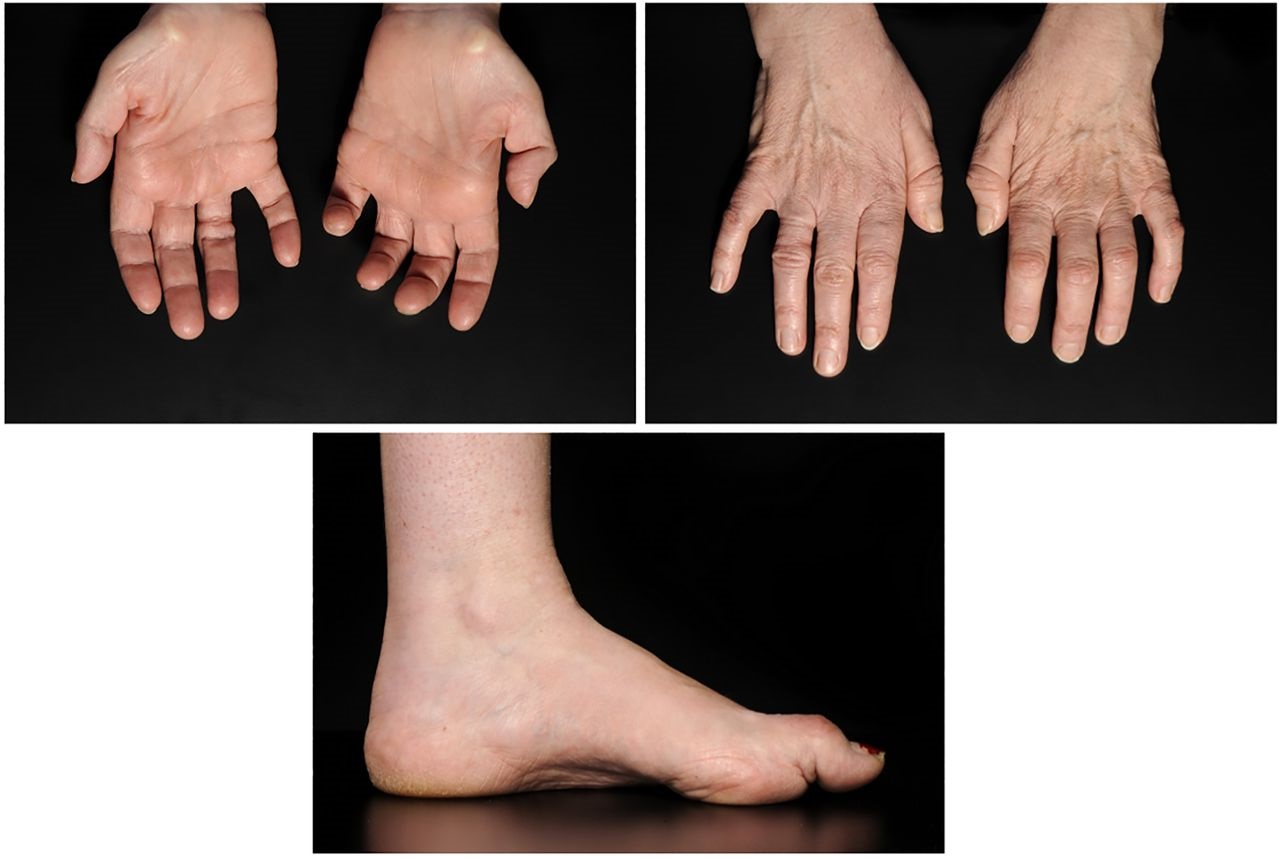
Motor Sensory Neuropathy Type 1 Aplasia Cutis Congenita is a rare genetic disorder that affects both the nervous system and skin. This condition combines two distinct issues: motor sensory neuropathy, which impacts muscle movement and sensation, and aplasia cutis congenita, characterized by the absence of skin at birth. Individuals with this disorder often experience muscle weakness, loss of sensation, and patches of missing skin. These symptoms can vary widely in severity. Understanding this condition is crucial for those affected and their families. Here, we’ll explore 25 intriguing facts about this rare disorder, shedding light on its causes, symptoms, and potential treatments.
Key Takeaways:
- Motor Sensory Neuropathy Type 1 Aplasia Cutis Congenita (MSN1-ACC) is a rare genetic disorder causing muscle weakness and skin issues due to TP63 gene mutations. Treatment focuses on managing symptoms and ongoing research offers hope for potential treatments.
- Individuals with MSN1-ACC may experience muscle weakness, loss of sensation, and skin lesions. While there is no cure, treatments like physical therapy and genetic counseling can help manage the condition and improve quality of life.
Understanding Motor Sensory Neuropathy Type 1 Aplasia Cutis Congenita
Motor Sensory Neuropathy Type 1 Aplasia Cutis Congenita (MSN1-ACC) is a rare genetic disorder. It affects both the nervous system and skin development. Here are some intriguing facts about this condition.
-
Genetic Basis: MSN1-ACC is caused by mutations in the TP63 gene. This gene plays a crucial role in the development of the nervous system and skin.
-
Inheritance Pattern: The disorder follows an autosomal dominant inheritance pattern. This means only one copy of the mutated gene is needed for a person to be affected.
-
Nervous System Impact: Individuals with MSN1-ACC experience motor and sensory neuropathy. This leads to muscle weakness and loss of sensation in various parts of the body.
-
Skin Manifestations: Aplasia cutis congenita refers to the absence of skin at birth. This can occur on the scalp or other parts of the body.
-
Prevalence: MSN1-ACC is extremely rare. Exact prevalence rates are unknown due to the limited number of reported cases.
Symptoms and Diagnosis
Recognizing the symptoms and understanding the diagnostic process is essential for managing MSN1-ACC.
-
Muscle Weakness: Affected individuals often have muscle weakness. This can impact mobility and coordination.
-
Loss of Sensation: Sensory neuropathy results in reduced or lost sensation, particularly in the extremities.
-
Skin Lesions: Newborns may have areas of missing skin, which can vary in size and location.
-
Delayed Milestones: Children with MSN1-ACC might experience delays in reaching motor milestones like walking or crawling.
-
Electromyography (EMG): EMG tests can help diagnose neuropathy by measuring electrical activity in muscles.
Treatment and Management
While there is no cure for MSN1-ACC, various treatments can help manage symptoms and improve quality of life.
-
Physical Therapy: Regular physical therapy can help strengthen muscles and improve mobility.
-
Pain Management: Medications and therapies can help manage pain associated with neuropathy.
-
Skin Care: Proper wound care is crucial for areas of missing skin to prevent infections.
-
Assistive Devices: Devices like braces or wheelchairs can aid mobility for those with severe muscle weakness.
-
Genetic Counseling: Families may benefit from genetic counseling to understand the inheritance pattern and risks for future children.
Research and Future Directions
Ongoing research aims to better understand MSN1-ACC and develop potential treatments.
-
Gene Therapy: Researchers are exploring gene therapy as a potential treatment to correct the underlying genetic mutation.
-
Stem Cell Research: Stem cell therapy holds promise for regenerating damaged nerves and skin.
-
Clinical Trials: Participation in clinical trials can provide access to new treatments and contribute to scientific knowledge.
-
Patient Registries: Registries help collect data on affected individuals, aiding research and improving understanding of the disorder.
-
Support Networks: Connecting with support groups and networks can provide emotional support and practical advice for families.
Living with MSN1-ACC
Living with MSN1-ACC presents unique challenges, but with the right support, individuals can lead fulfilling lives.
-
Education Plans: Customized education plans can help children with MSN1-ACC succeed in school.
-
Occupational Therapy: This therapy can assist with daily activities and improve independence.
-
Mental Health Support: Counseling and support groups can help address the emotional impact of living with a chronic condition.
-
Adaptive Sports: Participation in adaptive sports can improve physical health and provide a sense of community.
-
Awareness Campaigns: Raising awareness about MSN1-ACC can lead to better understanding, support, and funding for research.
Final Thoughts on Motor Sensory Neuropathy Type 1 Aplasia Cutis Congenita
Motor Sensory Neuropathy Type 1 Aplasia Cutis Congenita is a rare condition that affects both the nervous system and skin development. Understanding its symptoms, causes, and treatment options can help those affected manage their condition better. Early diagnosis and intervention are crucial for improving quality of life. Genetic counseling can provide valuable insights for families dealing with this condition. While research is ongoing, advancements in medical science offer hope for better treatments in the future. If you or someone you know is affected, seeking support from healthcare professionals and connecting with support groups can make a significant difference. Stay informed, stay proactive, and never hesitate to reach out for help.
Frequently Asked Questions
Was this page helpful?
Our commitment to delivering trustworthy and engaging content is at the heart of what we do. Each fact on our site is contributed by real users like you, bringing a wealth of diverse insights and information. To ensure the highest standards of accuracy and reliability, our dedicated editors meticulously review each submission. This process guarantees that the facts we share are not only fascinating but also credible. Trust in our commitment to quality and authenticity as you explore and learn with us.
